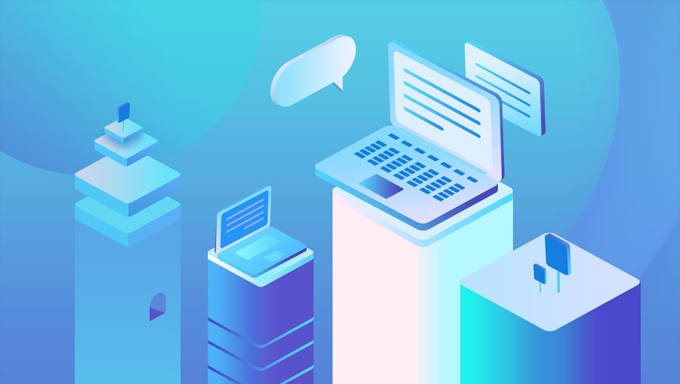ReadingExplorerLevel3U7-A
发布于 2021-04-20 02:18 ,所属分类:知识学习综合资讯

每周一篇原版阅读材料,旨在增长词汇量,提升阅读能力,拓展视野。恕未做更多中文注解,如有需要,请自行利用翻译工具辅助学习。
▶本书介绍请看这里◀
Caffeine:
The World's Favorite Drug

Before You Read
A. Matching.


B. Discussion.

If someone is burning the midnight oil, they are staying up very late to study or do some other work.
A stimulant is a substance that can temporatily increase the activity of body processes.
To counter something is to produce an effect that is opposite of what is being experienced.
Fatigue is the feeling of extreme mental or physical tiredness.
A mood-altering substance is capable of causing changes in your mood.

Ifyou do something in moderation (e.g., smoke or drink), you don't do more than what is reasonable.


Multiple Choice
Choose the best answer for each question.
1. What is this reading mainly about?
a. the popularity of coffee
b. the effects of caffeine on the body
c. healthy vs. unhealthy caffeine products
d. the dangers of caffeine intake
2. In paragraph 1, the word downing could be replaced with
a. holding b. waking
c. decreasing d. drinking
3. In paragraph 3, which refers to
a. adequate sleep
b. lack of sleep
c. food containing caffeine
d. consuming caffeine
4. Which statement would sleep expert Charles Czeisler probably agree with?
a. It's a good idea to consume caffeine if you want to maintain your energy.
b. Regular consumption of caffeine will make it difficult for you to get enough rest.
c. How caffeine affects your sleep depends on the type of caffeine you consume.
d. Caffeine can help you get an adequate amount of sleep ifconsumed in moderation.
5. Which of the following is NOT listed as a possible side effect of drinking caffeine?
a. addiction
b. mood changes
c. painful headaches
d. muscle inflammation
6. Which of the following is closest in meaning to:
Moreover, despiteits nearly universal use, caffeine has rarely been abused.
a. Even though caffeine is consumed almost the world over, there aren't many instances of misuse.
b. Even though caffeine is often misused, it is consumed almost the world over.
c. Despite caffeine's popularity, addiction isn't a problem.
d. Caffeine is used all over the world, so it is commonly misused.
7. The following sentence would best be placed at the end of which paragraph?
Many say they couldn't live without it.
a. paragraph 1 b.paragraph 4
c. paragraph 6 d. paragraph8

Understanding Pros and Cons
A writer often discusses both sides of an argument or an issue. Understanding the reasons for an issue (the pros) and the reasons against an issue (the cons) helps you evaluate the author's claims and determine your position about the issue. The most effective way to do this is to list the pros and cons in two separate columns. This allows you to determine the strength of each claim.
A. Completion
Look back at the reading. Complete the chart with the pros and cons of caffeine consumption.
| Caffeine consumption Pros |
|
| Caffeine consumption Cons |
|
B. Evaluating
Is eating chocolate good for you? Mark each statement as P (a pro) or C (a con).
□1.It can be expensive if eaten every day.
□2.It can cause mood swings.
□3.It contains alow level of caffeine,which can help increase alertness.
□4.The sugar in chocolate can cause tooth decay.
□5.The calcium in chocolate can reduce the harmful effects of toothdecay.
□6.It has alot of calories—just 100grams contains 520 kcals.

A. Completion.
Complete the information below withthe correct form of words from thebox. One word is extra.
exhibit facilitate
furthermore severe
Did you know that you are 1.( ? ) your dog if you feed it chocolate? Too much chocolate can be harmful for dogs and can cause a variety of medical problems. The extent of harm usually 2.(?) on the type of chocolate. 3.(?) ,it is also affected by theamount of chocolate that the dog consumes. Some of theeffects are quite 4.(?), and could possibly lead to death. So if your dog5.(?) symptoms such as rapid breathing, or vomiting, it's possible that a chocolate "treat" was the cause.
B. Words in context
Complete each sentencewith the correct answer.
1. If you facilitate something, you make it
a. easier
b. more difficult
2. Something that is temporary continues
a. forever
b. for a limited time
3.A ritual is a series of actions or behaviors that is repeated
a. formally
b. randomly
4. If something is contradictory, it _____ another argument.
a. opposes
b. supports
5. If something fluctuates, it_____a lot in an irregular way.
a. changes
b. fights
Before You Read
A.
1.b; 2.a; 3.c; 4.e; 5.g; 6.d; 7.h; 8.f
Reading Comprehension
1.b; 2.d; 3.b; 4.b; 5.d; 6.a; 7.a
Reading Skill
A.
Pros: physical, ease, memory, heart trouble/abuse;
Cons: sleep, mood, sadness, blood pressure
B.
1.C; 2.C; 3.P; 4.C; 5.P; 6.C or P
Vocabulary Practice
A.
1.abusing; 2.depends; 3.Furthermore; 4. severe; 5.exhibits
B.
1.a; 2.b; 3.a; 4.a; 5.a






![[H3C] 华三全新H3CNE实战式网络工程师课程 基于V7平台 华三H3CNE视频教程 全新大纲](https://static.kouhao8.com/sucaidashi/xkbb/391d69fb13a251f277efa2c92d75b81c.jpg?x-oss-process=image/format,webp/resize,w_88/crop,w_88,h_88,g_nw)













![[3DMAX] 分享一套超棒的3D Max视频教程 3D Max 3dmax零基础 入门到精通 3d自学视频](https://static.kouhao8.com/sucaidashi/xkbb/75348330c0c18042628713aa6c7d0a3d.jpg?x-oss-process=image/format,webp/resize,w_88/crop,w_88,h_88,g_nw)











![[3DMAX] 21G Autodesk 3ds Max 3DMAX白金手册 超级精华版 8张CD全集](https://static.kouhao8.com/sucaidashi/xkbb/6a8c271ca7b0f08dec5d01f358c8e0f8.png?x-oss-process=image/format,webp/resize,w_88/crop,w_88,h_88,g_nw)
相关资源